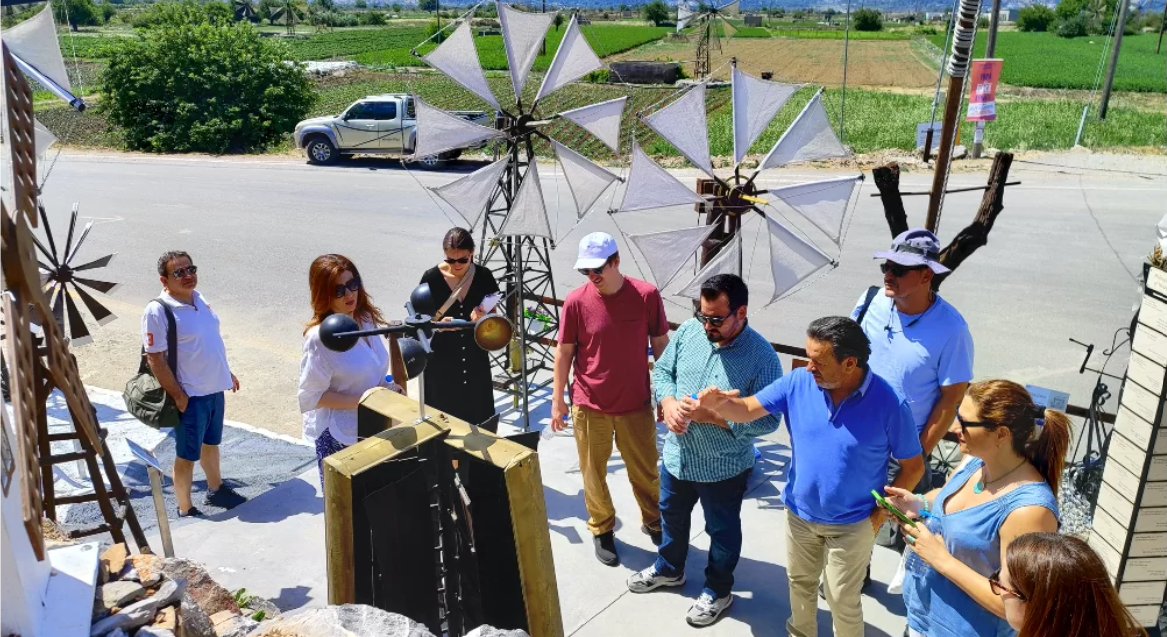A Renewable Energy Valley launches in Crete to lead the European energy transition

From June 17 to 19, representatives of the European project CRETE VALLEY travelled across Crete to present the Renewable Energy Valley ‘Living Lab’ (REV-Lab). The new decentralised power system will enable residents to meet their energy needs through renewable sources.
The three-day event was designed to introduce the public to the project that will place Crete at the forefront of the European energy transition. The innovative system will use a variety of renewable energy sources—such as solar, wind, geo-exchange, biomass, biogas, and hydrogen—to achieve both energy independence and energy democracy.
CRETE VALLEY’s roadshow started on June 17 in Lasithi Plateau and Arvi and continued the day after in Arkalochori. These stops covered the three Community Energy Labs (CELs) that, along with Aterinolakkos, will form the Renewable Energy Valley. The initiative closed on June 19 with a final event in Heraklion.
During the visits to the CELs, the CRETE VALLEY team presented the project to residents and key stakeholders. They hosted co-design sessions to equip CEL managers with tools to enhance stakeholder relationships and improve CEL management. The final conference in Heraklion delved into the benefits of energy communities and the opportunities they provide to individuals and public authorities.
The REV-Lab is expected to deliver higher energy autonomy, a more secure supply, and lower and more stable overall energy costs. Around 150 residential, commercial, and industrial facilities, along with 175 households, will benefit from the production and storage of renewable energy.
The Renewable Energy Valley will integrate social innovation processes with cutting-edge ICT technologies and open digital solutions. These include a System-of-Systems Digital Twin to coordinate, manage, and operate the REV-Lab’s energy grids, and data-driven services and apps to help consumers make informed decisions and promote renewable energy consumption.
The roadshow was organised by CRETE VALLEY’s partners, including the Minoan Energy Community, Region of Crete, and ZSI, with participation from SYNERGY, SYCHEM, SOLMAR, the Hellenic Mediterranean University, MEC, ICLEI, Samsø Energy Academy, ICCS, and EUNICE.
“Our goal is to achieve energy autonomy in four areas of Crete, involving residents in the production and management of energy,” said Elissaios Sarmas, project manager. “CRETE VALLEY starts its journey in Greece but aims to facilitate the creation of more Renewable Energy Valleys across Europe, beginning with our follower communities in Ireland, Portugal, France, and Italy.”
Co-funded by the European Union, CRETE VALLEY is coordinated by the Institute of Communication & Computer Systems of the National Technical University of Athens (ICCS) and brings together 41 partners from across Europe. The 5-year project began in December 2023 and will run until November 2028.
Original press release here
More info about the project here